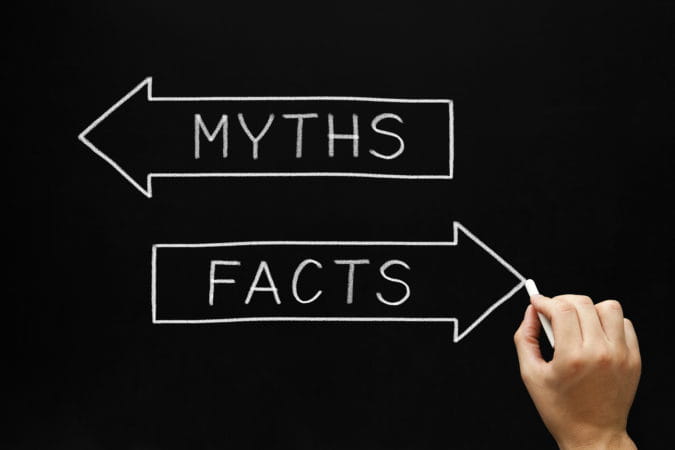
Archive | InBrief
Seven myths about credit cards and your credit score
Seven myths about credit cards and your credit score
As a member of the West Monroe Payments Practice, I work with our clients to help them develop payments strategies, products, and partnerships. As both a professional and a consumer, I am frequently asked about credit card rewards, features, usage best practices, technologies, and more. Over a series of blog posts, I will examine several of these topics in more depth.
Like many financial products, credit cards give some people anxiety. Often fueling that anxiety is a misunderstanding of how credit cards work and how your credit score is calculated.
The truth is, credit cards are not the complicated, evil financial instruments that some people would have you believe. When used responsibly, credit cards provide free short-term financing (i.e., the time between making a purchase and your bill due date) and free money in the form of rewards. That’s right – your credit card company pays you to use their card.
Here are seven debunked myths to help calm those nerves.
Myth 1: Using a credit card will get you into debt Using a credit card will not get you into debt – the inability to control your spending habits will. A top principle of financial well-being is to live within your means and not spend money you don’t have. If you are someone who spends with reckless abandon and cannot follow this guiding principle, then maybe a credit card isn’t for you. However, contrary to popular belief, debit cards may not be your friend either. While many people view debit cards as a “safer” option, they expose customers to various types of fees (e.g., an overdraft fee for overdrawing your checking account), and lack many of the protections that credit cards provide. The bottom line is that if you are prone to overspending, you will likely get yourself into trouble no matter what financial instrument you use. The best option for consumers (even those who may be overzealous with their spending) is to make purchases with a credit card, actively manage and track spending, and pay bills regularly.
Myth 2: You shouldn’t enroll in auto bill pay because you may accidently pay for fraudulent charges
While it’s true that using the auto-bill pay feature may cause you to temporarily pay for fraudulent charges, it is also true that you are never liable for these charges. In fact, often when you experience fraud, your credit card issuer freezes your account due to suspicious activity before you even notice the charges. If you do end up paying for a fraudulent charge, you will still be able to dispute it after you have paid your bill. Disputing a payment is becoming easier and easier as banks leverage digital channels for fraud management. Many issuers allow you to dispute a charge online or in-app without even speaking to a representative. Thus, having auto bill pay will not impact your ability to recoup losses due to fraud.
Myth 3: Having a lot of credit cards will hurt your credit score
Applying for several credit cards in a short period of time will have a negative short-term impact on your credit score, as banks interpret this as risky behavior. However, if you acquire credit cards over time, it can have a positive impact on your score. Having multiple credit cards increases your total available credit, which enables you to lower your credit utilization rate – a ratio that banks typically like to see consumers keep below 30%. In other words, owning several credit cards can improve your credit score in the long run if you continue to spend responsibly.
Myth 4: Carrying a balance will improve your credit score
Not only is this false, but not paying off your entire statement balance will result in interest payments that will likely erode any rewards you earn. While paying your minimum required payment due is necessary to keep your account current, you will pay interest on the revolving balance. In industry terms, people who carry a balance from month to month are “revolvers” and those who pay off their balance in full are “transactors.” The truth is, banks love revolvers. Reliable revolvers are the bank’s most profitable cardholders, but they are also riskier because they may default on their loans. Your credit score is an assessment of risk, not bank profitability.
Myth 5: Paying your cell phone or utility bill on time can help build your credit score
Paying your cell phone bill, gym membership fee, and rent on time seems like it should contribute to your credit score, but it doesn’t. These companies do not report payment information to the credit bureaus. Alternatively, not paying on time can negatively impact your credit score. If a payment is long outstanding, they will likely send your bill to collections, which would be reported to the credit bureaus and result in a hit to your score.
Myth 6: You should close credit cards you’re not using any more
You should only close inactive credit cards if they carry annual fees; otherwise, having inactive credit cards will not negatively impact your credit score. The more available credit you have assigned to your credit profile, the better your score, since your credit utilization rate will be lower. Closing a credit card can have a short-term negative impact on credit score depending on the size of the line you’re closing and how long that line has been open. Total available credit and the average length of your credit history are two key inputs to your credit score. To reduce security risks of inactive cards, either keep them in a secure location or cut them up.
Myth 7: Having a consistently high credit score is vitally important to your financial well-being
There is no denying your credit score is important. When you’re in the market for a new credit card or loan, your score may impact your ability to get the best rates, terms, and offers. However, if you are not actively seeking credit, a temporary short-term dip to your credit score is not going to impact your life. I am in no way advising you to carry a balance or not pay your bills on time, as there are other repercussions to those actions, but a minor short-term change to your score (e.g., from opening or closing a card), is not the end of the world.
I hope to have put some of your nerves at ease by debunking these credit card myths. With a better understanding of how credit cards and your credit score works, you should now be able to make more informed financial decisions. About West Monroe’s Payments Practice: West Monroe’s team of industry and technology experts helps our clients navigate the payments landscape by providing key insights to plan, build, assess, and improve payments initiatives. We use our uncommon blend to guide each step, from strategy formation to ongoing program management, to ensure your payments products, partners and technologies are helping you achieve your goals and meet consumer demands.

